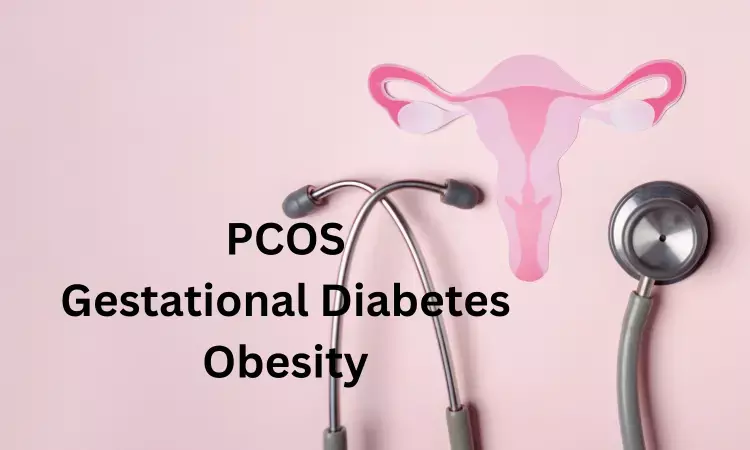- Home
- Medical news & Guidelines
- Anesthesiology
- Cardiology and CTVS
- Critical Care
- Dentistry
- Dermatology
- Diabetes and Endocrinology
- ENT
- Gastroenterology
- Medicine
- Nephrology
- Neurology
- Obstretics-Gynaecology
- Oncology
- Ophthalmology
- Orthopaedics
- Pediatrics-Neonatology
- Psychiatry
- Pulmonology
- Radiology
- Surgery
- Urology
- Laboratory Medicine
- Diet
- Nursing
- Paramedical
- Physiotherapy
- Health news
- Fact Check
- Bone Health Fact Check
- Brain Health Fact Check
- Cancer Related Fact Check
- Child Care Fact Check
- Dental and oral health fact check
- Diabetes and metabolic health fact check
- Diet and Nutrition Fact Check
- Eye and ENT Care Fact Check
- Fitness fact check
- Gut health fact check
- Heart health fact check
- Kidney health fact check
- Medical education fact check
- Men's health fact check
- Respiratory fact check
- Skin and hair care fact check
- Vaccine and Immunization fact check
- Women's health fact check
- AYUSH
- State News
- Andaman and Nicobar Islands
- Andhra Pradesh
- Arunachal Pradesh
- Assam
- Bihar
- Chandigarh
- Chattisgarh
- Dadra and Nagar Haveli
- Daman and Diu
- Delhi
- Goa
- Gujarat
- Haryana
- Himachal Pradesh
- Jammu & Kashmir
- Jharkhand
- Karnataka
- Kerala
- Ladakh
- Lakshadweep
- Madhya Pradesh
- Maharashtra
- Manipur
- Meghalaya
- Mizoram
- Nagaland
- Odisha
- Puducherry
- Punjab
- Rajasthan
- Sikkim
- Tamil Nadu
- Telangana
- Tripura
- Uttar Pradesh
- Uttrakhand
- West Bengal
- Medical Education
- Industry
PCOS with Obesity associated with higher risk of Gestational diabetes

Polycystic ovary syndrome (PCOS) is a growing threat as it affects an estimated 8-13% of reproductive-aged women. Up to 70% of affected women remain undiagnosed worldwide. PCOS is the commonest cause of anovulation and a leading cause of infertility.
PCOS is associated with an increased risk of gestational diabetes, but this risk is significantly higher in the presence of obesity, according to new research published in the Journal of Obstetrics and Gynaecology Canada. The rate of gestational diabetes was higher among women with PCOS (60.2 per 1000 births), compared with women without PCOS (48.6 per 1000 births). Obesity mediated 89.7% of this association.
In Past decade studies has reported that PCOS is a risk factor for gestational diabetes independent of obesity, while other research has shown that obesity has an important effect on this risk to validate the same the current study was designed.
The researchers used causal mediation analysis to elucidate more clearly the effect of obesity on the development of gestational diabetes among patients with PCOS. No previous study has used causal mediation analysis to examine this relationship stated the researchers.
The key findings are
• Researchers included 1,268,901 births, between 2006-2018 - 387,748 with maternal PCOS and 881,153 without.
• Modified Poisson regression generated a relative risk (aRR) adjusted for maternal covariates. Causal mediation analyses accounted for the indirect effect of obesity.
• Women with vs. without PCOS had a higher rate (60.2 vs. 48.6 per 1000 births) – and aRR (1.05, 95% CI 1.03, 1.06) of GDM.
• Obesity mediated a significant proportion (90%) of this association. Preconception counselling in patients with PCOS should target weight optimization.
Researchers ended that “"We hope that these data will inform preconception counseling and gestational diabetes screening in pregnant women with PCOS. We have the data now to counsel our patients on the importance of weight management before preganancy. But we need more resources, such as specialized clinics, to help these patients cope with managing their weight. We can tell our patients to work on their weight management, but they need much more support from the healthcare system."
Reference: Mahma Ahmed, BSc; Jonas Shellenberger, MSc, Maria P. Velez, MD, PhD. ; Polycystic Ovary Syndrome, Gestational Diabetes Mellitus, and the Mediating Role of Obesity: A Population-Based Cohort Study; J. Obs. Gyn Cannada (JOGC); DOI:https://doi.org/10.1016/j.jogc.2023.102238.
MSc. Neuroscience
Niveditha Subramani a MSc. Neuroscience (Faculty of Medicine) graduate from University of Madras, Chennai. Ambitious in Neuro research having worked in motor diseases and neuron apoptosis is interested in more of new upcoming research and their advancement in field of medicine. She has an engrossed skill towards writing and her roles at Medical dialogue include Sr. Content writer. Her news covers new discoveries and updates in field of medicine. She can be reached at editorial@medicaldialogues.in
Dr Kamal Kant Kohli-MBBS, DTCD- a chest specialist with more than 30 years of practice and a flair for writing clinical articles, Dr Kamal Kant Kohli joined Medical Dialogues as a Chief Editor of Medical News. Besides writing articles, as an editor, he proofreads and verifies all the medical content published on Medical Dialogues including those coming from journals, studies,medical conferences,guidelines etc. Email: drkohli@medicaldialogues.in. Contact no. 011-43720751


